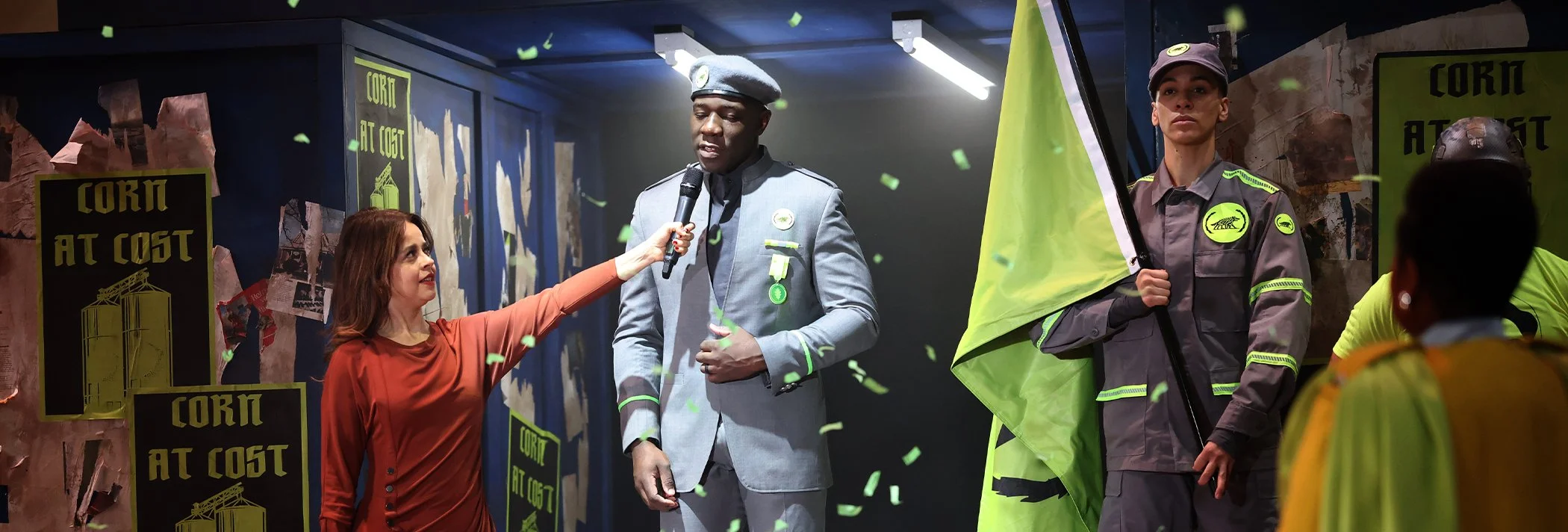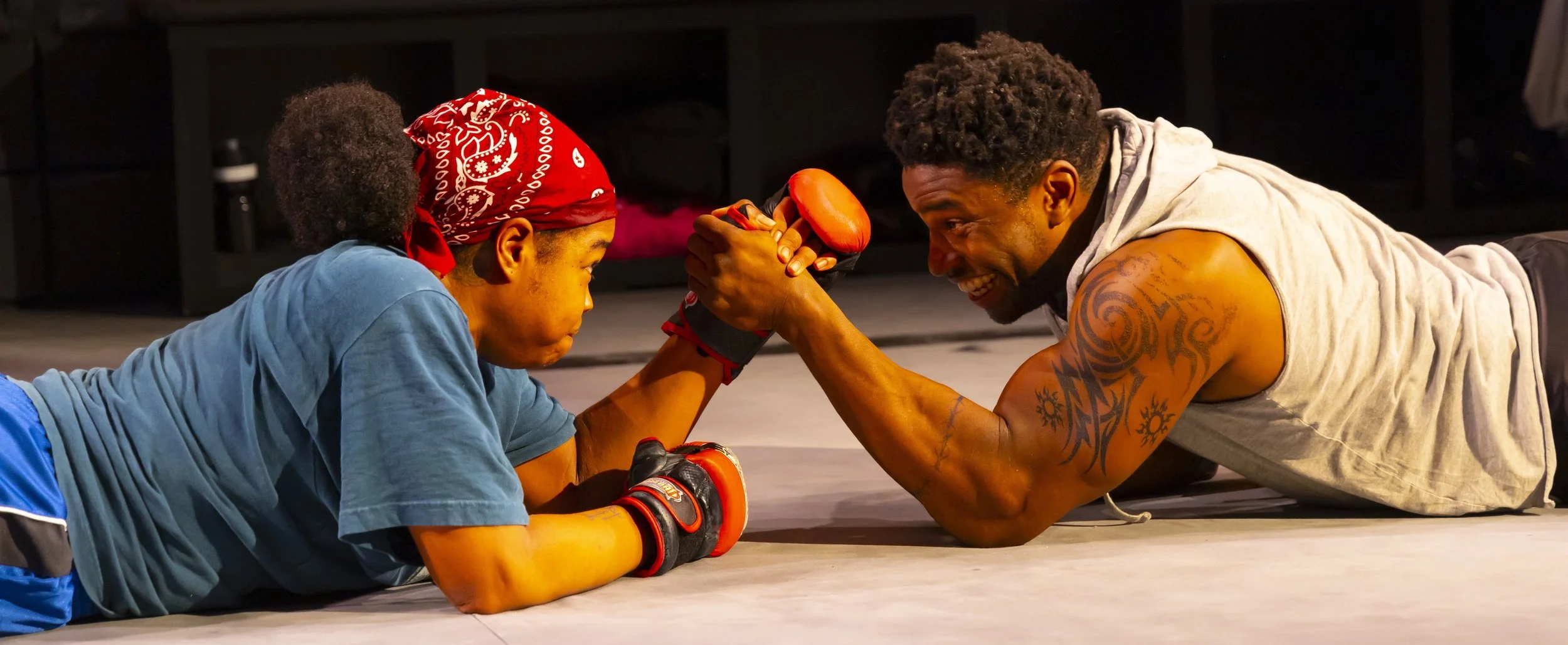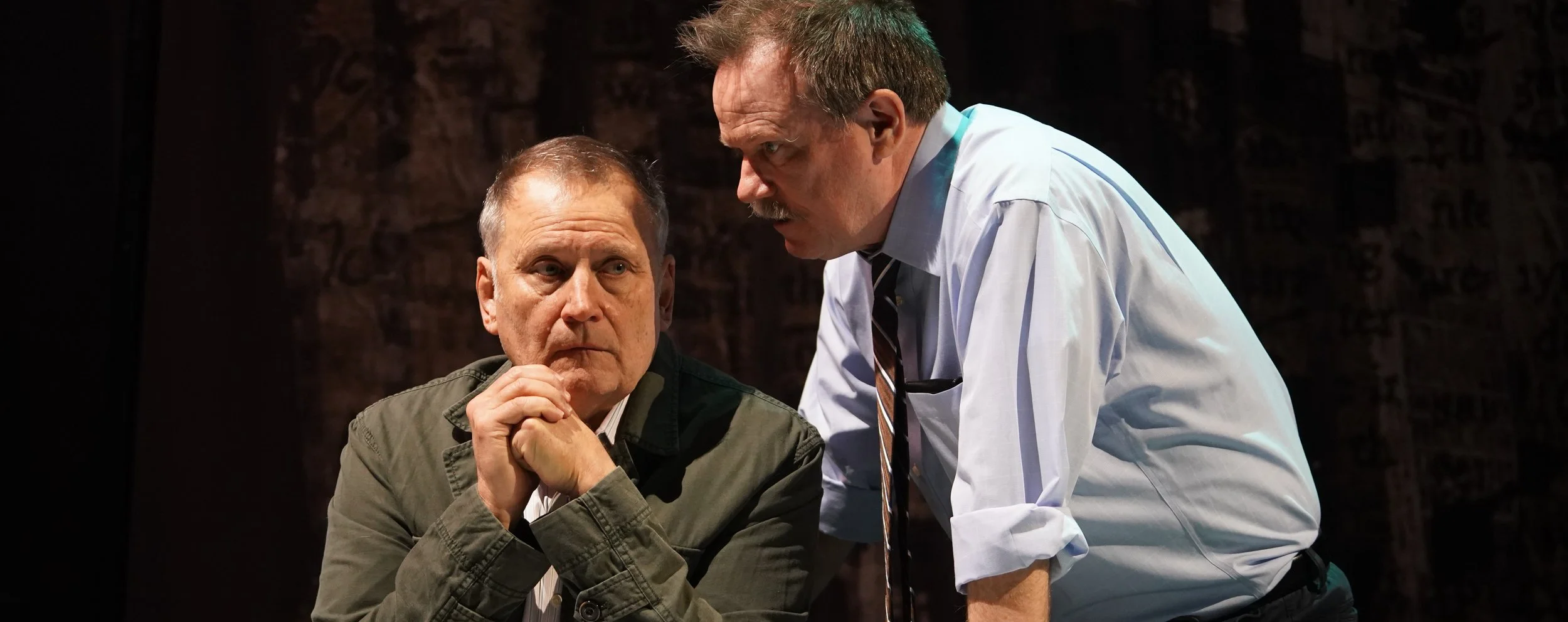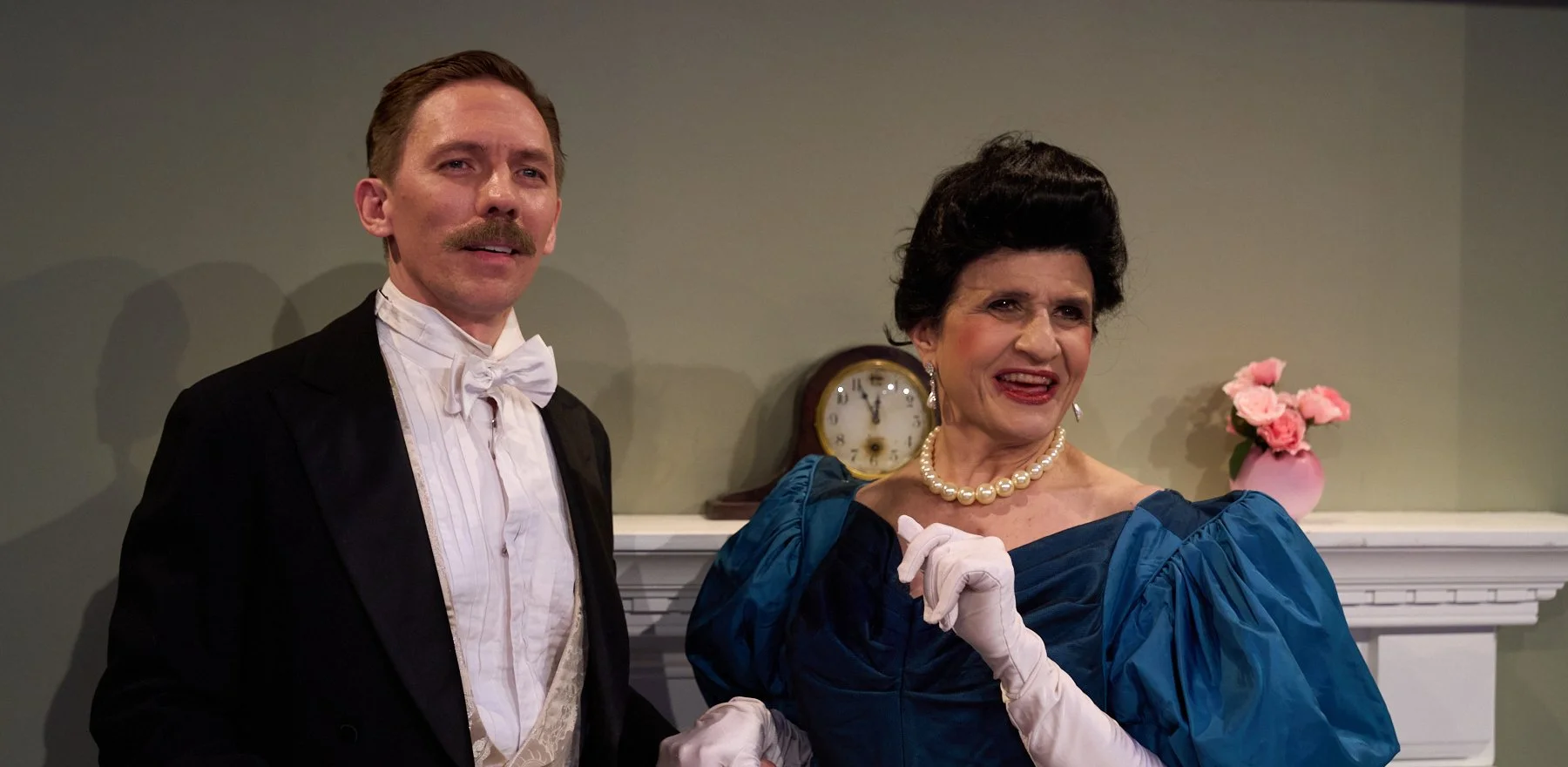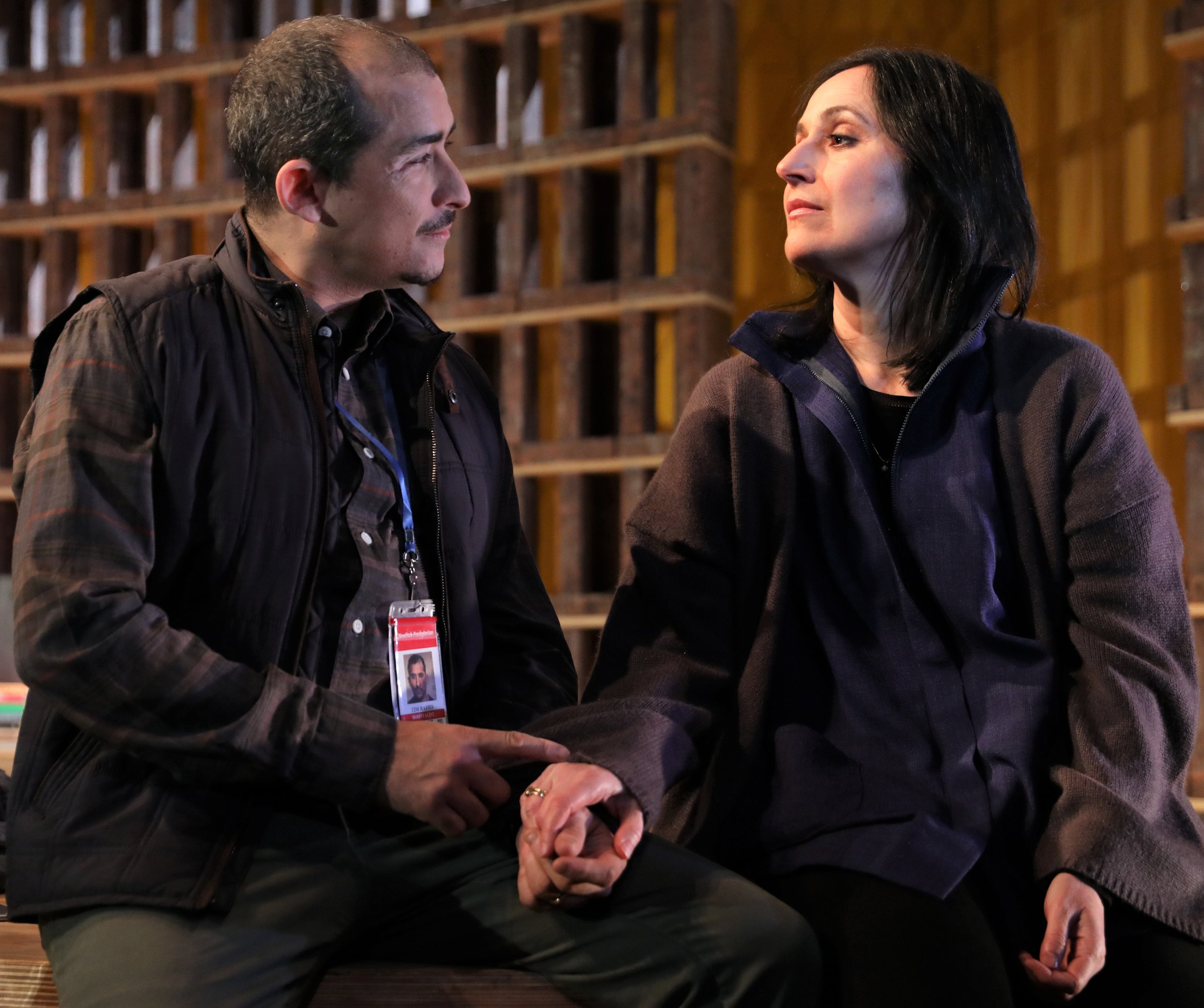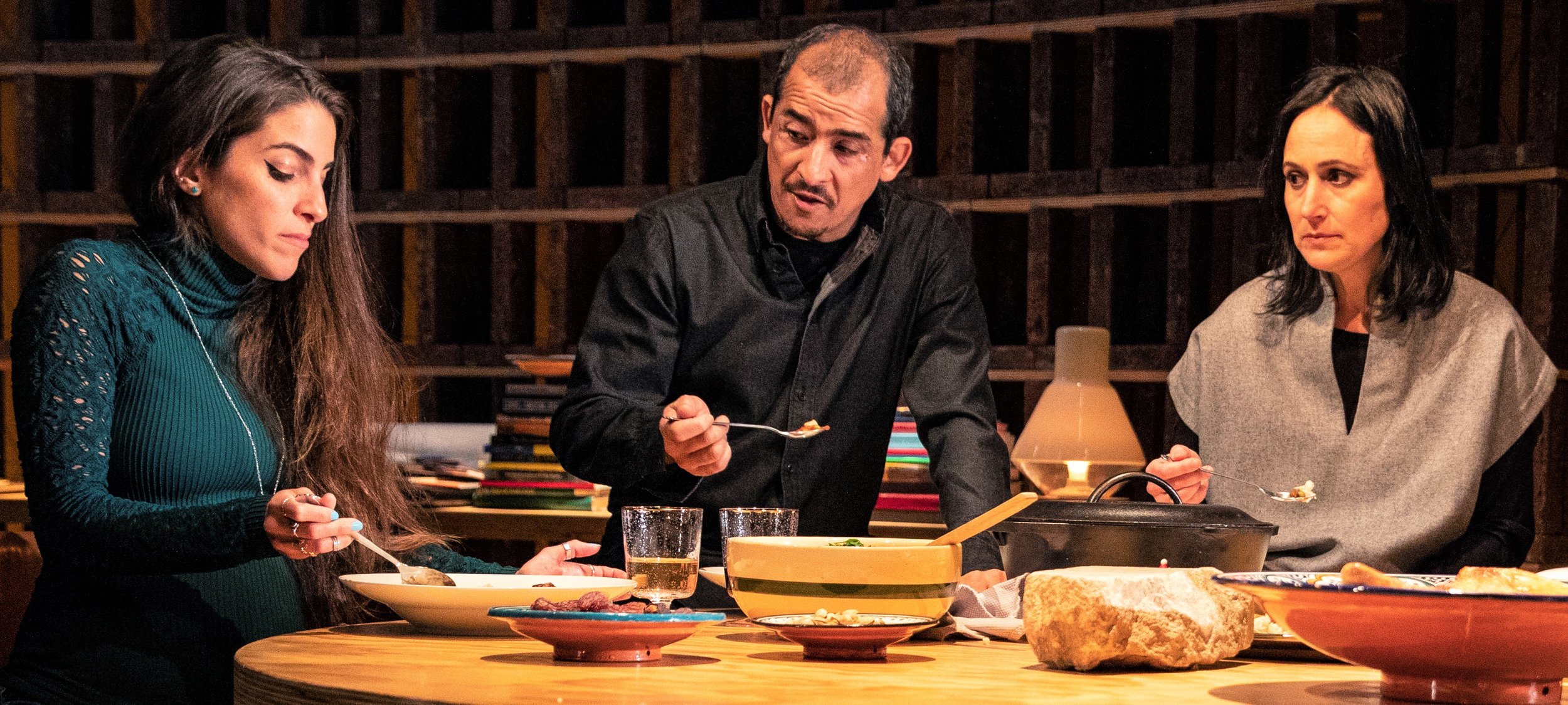A program note by Corinne Jaber, the playwright who is making her debut with Munich Medea: Happy Family, says that her work is meant to “shine light into places that are difficult to look at” and not “judge nor accuse, but to reveal.” She accomplishes that, but the story line of her fairly static, albeit well-cast, play feels like one we’ve (unfortunately) seen before. At this point, more than 25 years after How I Learned to Drive won the Pulitzer Prize, sexual abuse is no longer a novel subject for the stage.
Noura
Heather Raffo’s Noura scrutinizes the issue of assimilation of refugees into American society by looking at the experience of the title character, an Iraqi woman. Noura (played by Raffo herself) is a stern but loving mother and wife who escaped the ISIS capture of Mosul with her husband, Tareq (Nabil Elouahabi). After setting down roots in the new country, Noura finds that she desperately misses her hometown traditions. Raffo’s play echoes a question that Arthur Miller, in his essay The Family in the Modern Drama, asks: “How may a man make of an outside world a home?” For Raffo, the question is: “What keeps a family together?” The play reveals ways that American life can create isolation more than togetherness.
Liam Campora (left) plays Yazen, or Alex, and Matthew David is Rafa’a, a family friend, in Heather Raffo’s Noura. Top: Raffo as Noura, with Nabil Elouahabi as her husband, Tareq.
Noura, one of the Christian minority in Mosul, holds on to the Christmas traditions she was raised with as the only things left from the rubble of her hometown. She remembers the way her old neighbors would visit her father’s house on Christmas for a jubilee of dancing, good food and conversation. But in America the fast-paced and alienating effects of social media and personal technologies, such as cell phones and gaming systems, have made it harder for her family to hold on to those traditions.
Her son, whom she calls Yazen but who is also known by an Americanized name, Alex (Liam Campora), is just interested in his PlayStation and hates the fast his family observes. He begs to live a normal American life. Tareq, meanwhile, has come to terms with his new life. He is no longer able to be a surgeon as he once was in Mosul; he now works at a sandwich shop and takes up shifts that cut into his spending time with the family. Noura is thinking of continuing her career as an architect and struggles with how small and uncommunal her family has become. Noura, directed by Joanna Settle, shows that retaining one’s true identity in a new country is a struggle filled with compromises.
There’s also the family’s close friend, Rafa’a (Matthew David) and Maryam (Dahlia Azama), an orphan from Mosul who is sponsored by Noura and Tareq. Rafa’a serves as an interesting sounding board to Noura’s concerns about the life in Mosul, as well as Tareq’s sacrificing of his career and whether or not they have made the right choices in the years they have lived in America. Maryam, who comes for the holidays before going back to Stanford, carries a secret that causes Noura to question holding on to the traditions. She feels pressure to reveal the secrets she carried overseas to New York. The shorthand question in Raffo’s play is summed up by one that Rafa’a asks: Is holding on the old ways necessary?
Raffo and Elouahabi with Dahlia Azama (left) as Maryam. Photographs by Joan Marcus.
The set, designed by Andrew Lieberman, is grounded by a Christmas tree. Lighting designer Masha Tiriming’s lights gently swirl around the tree and glisten like stars in the darkness. It is a constant reminder of the holiday spirit: a time of togetherness and cheer, but it all looms over Noura’s family, who have splintered off from the traditions of her youth in Mosul. In the middle area is a tall structure that looks like a curved cage that encapsulates the family’s coming-together space; books, teapot, and other ornaments lie on the shelf attached to the structure. The table serves as a dinner table and a work station for Noura and is always cluttered. The floor and wall in Lieberman’s set are tiled with an Aramaic design that evokes the idea of the life that was left behind and the life that they are forced to embraced within their home.
But they also recognize the drawbacks of their old life. The communal life that Noura yearns for is mostly out of the sadness of the past she has left behind. Mosul also has a rugged individualism where there are Christian communities and Muslim communities that have strict rules of when mingling amongst each other. Middle Eastern culture prides itself on “deeply interwoven social fabric of community,” Raffo states in the program, while American culture “prides itself on rugged individualism.”
The actors embody the conflicts with intensity, their characters all fighting to have their perspectives heard. “What’s wrong with feeling safe?” says Tareq. “I’m grateful that there is a place we can reinvent ourselves, a place we can forget.” Noura responds, “I don’t want to forget! I’m trying desperately to remember who the hell I am.” There aren’t any clear answers in how to live their lives as true Iraqi-Americans, and no one gains leverage over another’s opinion.
What Noura does successfully is explore the challenges of living free and happy as an immigrant in America from many angles, as the characters express the various ways identity and culture can fulfill one’s sense of being—but it also shows how malleable traditions may become in the need for survival.
The Profane
Secularism and faith square off in Zayd Dohrn’s The Profane, a play that takes as its focus two American families of Middle Eastern extraction. The premise is that a young couple from different backgrounds have fallen in love: It’s Guess Who’s Coming to Dinner? with a 21st-century spin. Dohrn hasn’t strayed far from the formula, which includes parent-child friction, sibling rivalry and the occasional dollop of comical culture clash.

